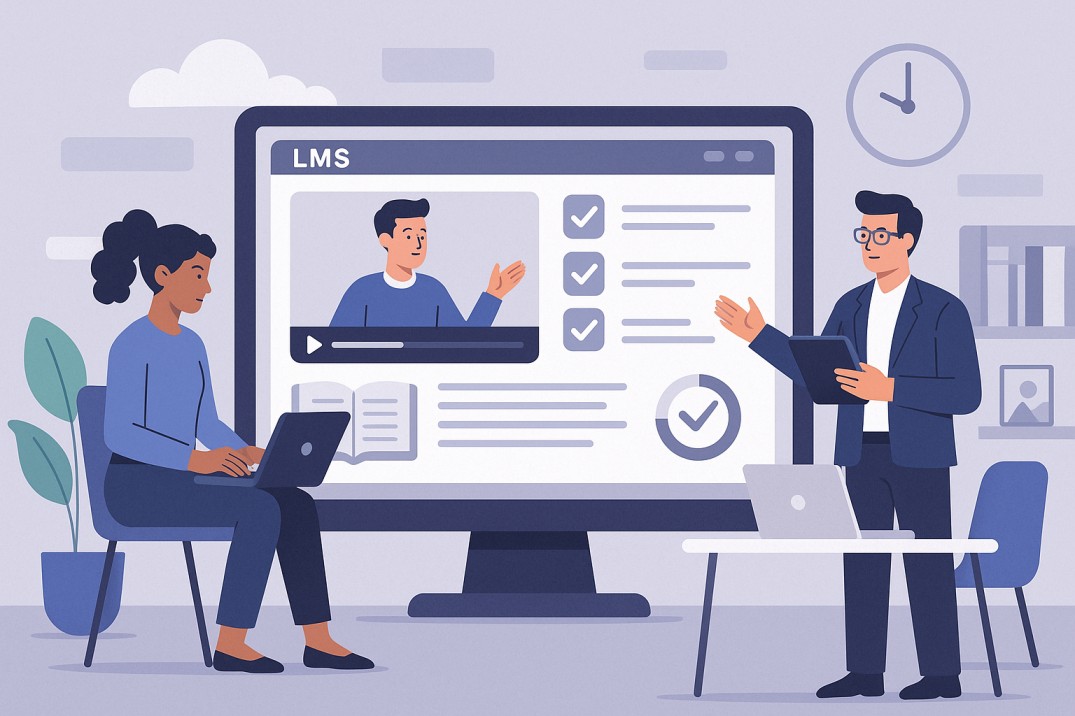
Of course, managing a distance learning classroom or online training program is simply too much for one person or even a group of people to handle. An LMS takes care of content management, collaboration techniques, agendas and announcements, assignment and coursework management, and learning path development, among other things. It allows for online classrooms to be organized internationally, linking a company LMS to its various human resources departments and ERP systems, to perform long distance, cost-effective, and efficient training.
Collaboration is the newest wave of our increasingly service-oriented business world, and therefore a must in training. Oftentimes, both in training and product development, collaborative groups are composed of a loose group of individuals working together to achieve a common goal. These may be a group of individuals with different backgrounds, cultures, education and languages. For collaborative learning, an LMS serves a crucial role in its ability to track members’ individual and collective progress in an online human resources training course.
One way that collaboration may be utilized to benefit a company is in introducing a new product or service. For example, if the employees in training are in customer service or sales, a company could introduce the new product, delivering training on the product through the LMS, and prompt trainees to work together to develop strategies and solutions to given situations when dealing with customers, etc.
For this, companies that have been experimenting with virtual worlds like Second Life to provide trainees with a 3D meeting space and collaborative educational space have experienced mixed results. Educational software like Second Life still has many challenges to face in offering an efficient and robust learning experience.
Training for a role in a service team is something easily charged to an LMS, with video tools, simulations, and audio tools like those used by Coggno, to create situations where an employee must deal with a customer. Some systems are even multi-lingual, providing a number of built-in languages to personalize each employee’s training.
Distance learning collaboration isn’t always easy, of course. We’ve all experienced the frustration of technical problems with the very same tools intended to facilitate group collaboration. Inevitably, a conference call is interrupted by technical problems, or one or two team members aren’t familiar with how to use a new technology. Web 2.0 tools like conferencing may sidetrack members and draw them into a distracting cycle of tool experimentation. Some tools may take hours for users to get the hang of, and ultimately may not even function efficiently.
Although some tools like virtual worlds can help virtual teams achieve goals, introducing these technologies can also impose distractions which waste valuable time. A slick new piece of technology is only as effective as the effects it produces.
An LMS is able to automate many training processes that would otherwise cost organizations a great deal of time and money. Learners all over the world are able to access online training via an LMS any time, without complicated plug-in software. Learning management systems take care of staff orientation and induction programs, reaching out to employees from all around the world.
—————-
Coggno.com offers premier LMS platforms.

















